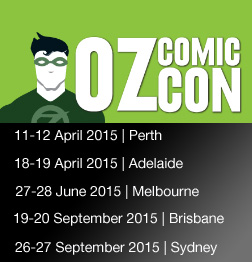 Whenever there is a commercial and critical hit in the gaming world, it seems like only a matter of time before we can expect a sequel. Developers Irrational Games’ ‘Bioshock’ was one such hit, praised for its brilliantly atmospheric environments, engaging story and variety of action and gameplay, and as expected, the developers (2k Marin, this time around) have come back to give us more of the same (and ‘more of the same’ just about sums it up).
Whenever there is a commercial and critical hit in the gaming world, it seems like only a matter of time before we can expect a sequel. Developers Irrational Games’ ‘Bioshock’ was one such hit, praised for its brilliantly atmospheric environments, engaging story and variety of action and gameplay, and as expected, the developers (2k Marin, this time around) have come back to give us more of the same (and ‘more of the same’ just about sums it up).
To anyone who is unfamiliar with the basic premise of the Bioshock series, the story takes place in an alternate world during the 1960’s, in the vast underwater city of Rapture, a colony established deep in the ocean by megalomaniac Andrew Ryan, as a supposed ‘paradise’ away from the control and structure of an organised government. It’s basically your classic pulp science fiction plot. Naturally, this proposed utopia doesn’t take long before it becomes a dystopia, with the inhabitants reduced to genetically altered freaks. Throw in some genetic powers, mechanised over-protective deep sea divers and a few creepy little girls with giant syringes, and you’ve got the basic package.
Now, i’m not really going to review Bioshock 2, considering the game came out several weeks ago and there are already dozens of reviews out there. If you haven’t read any reviews, I can recommend the platforms podcast review that was done a few weeks back (gotta love that cross promotion-ey goodness). What i’m more interested in is how this game expands on the first as a sequel, and how it compares to other great sequels.
First things first, there are alot of similarities between the first game. They both look the same visually, handle roughly the same, and follow a very similar narrative. Obviously, with the first game being such a success, there wasn’t any real need to drastically change the formula, so what we really have is a continuation of the first game, with a few little bits and pieces added. This begs the question, is this a good thing or a bad thing?
It’s interesting in the gaming world how the expectations of a sequel to a great game are different to the expecations of a sequel to a great movie. For film, narrative plays a much more important role in justifying the need for a sequel, whether there is a valid enough reason to revisit these characters or whether the stakes can be raised further to keep things interesting and keep an audience engaged. In games, it seems to be markedly different. As long as there are new weapons, levels or gameplay features, the formula can still stay relatively the same. But perhaps this is starting to become a slightly outdated concept. As games are becoming more and more cinematic, surely more rules of cinema should start to apply to games as well? There are already games like the Gears of War franchise or the God of War series, that are being marketed as epic trilogies, where the story is the main focus and selling point. Perhaps then, this is the direction other games need to go?
After playing through the first game, I found the story in Bioshock to be lacking. [SPOILERS MAY FOLLOW] Essentially, you play a voiceless and faceless character as you explore deeper and deeper into rapture. Now, this works to an extent in terms of immersion, because the player isn’t having a character forced on them, making it more like the player him/herself is exploring Rapture. Scenes like the opening spring to mind, when you first witness the splendour of Rapture through an underwater transport sphere in what is a truly jaw dropping moment. It’s at this point that you immediately become engaged, and want to know more, (“What is this place?” “Why build a freakin’ underwater city?!?”), and that becomes part of your main motivation to continue playing the game. However, its only from playing the second game now, that I realise the intrigue of rapture is the only aspect of the game that keeps you interested, and once you already know Rapture’s story, you don’t need to return. When this sense of wonder and atmosphere is gone, what you have is another shooter with an average control mechanic and an upgrade system.
Now, the second game isn’t entirely to blame for this. With the first game being so successful, it’s only natural that they should want a sequel, however the developers weren’t exactly left with a lot to move on with in terms of narrative. The first game only introduces a few characters and most of them get killed anyway, so the only real ‘characters’ left for the developers to expand on from the original were Big Daddies (the ruthless, voiceless killing machines) and the city of Rapture itself. You can see the problem.
This is where cinema logic could come into play, I think. When creating a game, the developers should go into it with either the intent to make a sequel reflected in the narrative (with either cliff hanger endings, or room left to develop the story further) or the commitment to make a brilliant stand alone game. This has lead to downfall of many movie trilogies (See: The Matrix, Pirates of the Caribbean, Terminator), where sequels merely feel like tacked on stories, trying to milk every last cent out of a franchise.
This takes me back to my original question, is this a good thing or a bad thing? Unfortunately, I can’t see a definite answer. I’m sure there are plenty of hardcore gamers out there who are perfectly content with Bioshock 2 giving them more things to shoot at (and Multiplayer too, did I mention there is Multiplayer?). But equally so, for an industry that is constantly growing and expanding, one should always think for the future. Will this old formula still work for the casual gamer of the future after so many great games sequels like Uncharted 2 or God of War 3 have shown us a better and more cinematic way of doing things? We’ll just have to wait and see I guess. I suppose we can always kill some time playing Bioshock 2 (or not.)










1 comments
I have to say as an avid movie freak and only a casual gamer I would love game sequels to focus on the story more than just being more of the same.
I am a huge fan of Mass Effect 2 for that very reason. Yes they updated some of the features that really needed fixing (like the combat system) but they didn't change it so radically it felt like a different game. Instead they focused on bringing us a true sequel with a compelling story line. Bioshock 2 has felt, for me anyway, much more like an add on pack to the original game instead of a sequel. That is the main reason I haven't bothered to play it. One last thing, welcome to Geek Actually Wolvieboy17.